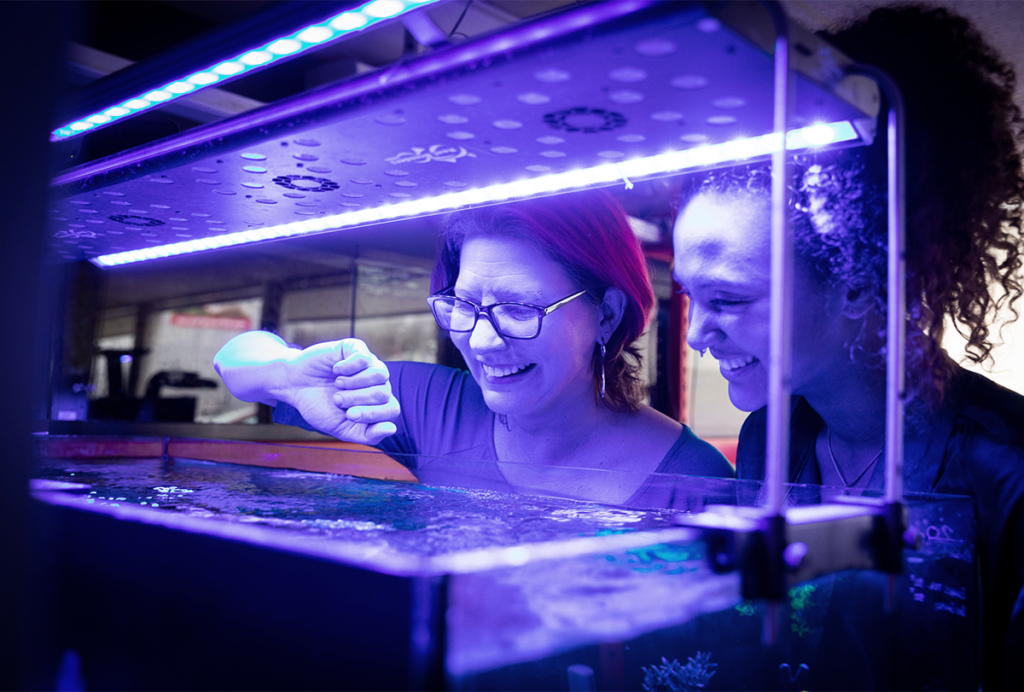Susanne Ahmari is associate professor of psychiatry and director of the Translational OCD Laboratory at the University of Pittsburgh. She is also program director at Wellcome Leap, where she developed and directs Multi-Channel Psych, a $50 million program to deliver new treatments for anhedonic depression. Ahmari has expertise in translating findings between humans and model systems and is a trailblazer in the use of advanced technology to precisely manipulate and monitor circuits to uncover the neural substrates of obsessive compulsive disorder.
She earned her M.D. and Ph.D. in molecular and cellular physiology at Stanford University and completed her residency in psychiatry at Columbia University. She then established the Translational OCD Laboratory at the University of Pittsburgh in 2013 to conduct interdisciplinary research that will ultimately lead to better treatments for people with obsessive-compulsive disorder.
Ahmari’s research program has received support from the U.S. National Institute of Mental Health, the National Institute of Neurological Disorders and Stroke, and other foundation grants, including a Burroughs Wellcome Career Award, an International OCD Foundation Breakthrough Award and a Foundation for OCD Research Consortium Award. She has also received awards in recognition of her translational neuroscience efforts, including the McKnight Scholar Award, the NIMH Biobehavioral Research Awards for Innovative New Scientists Award, the A.E. Bennett Basic Research Award, the MQ Fellows Award, the One Mind Rising Star Award, and the American College of Neuropsychopharmacology Eva King Killam Research Award. She sits on the scientific advisory board of several research foundations, including the Brain and Behavior Research Foundation, ORCHARD, the International OCD Foundation, and ARIA.

